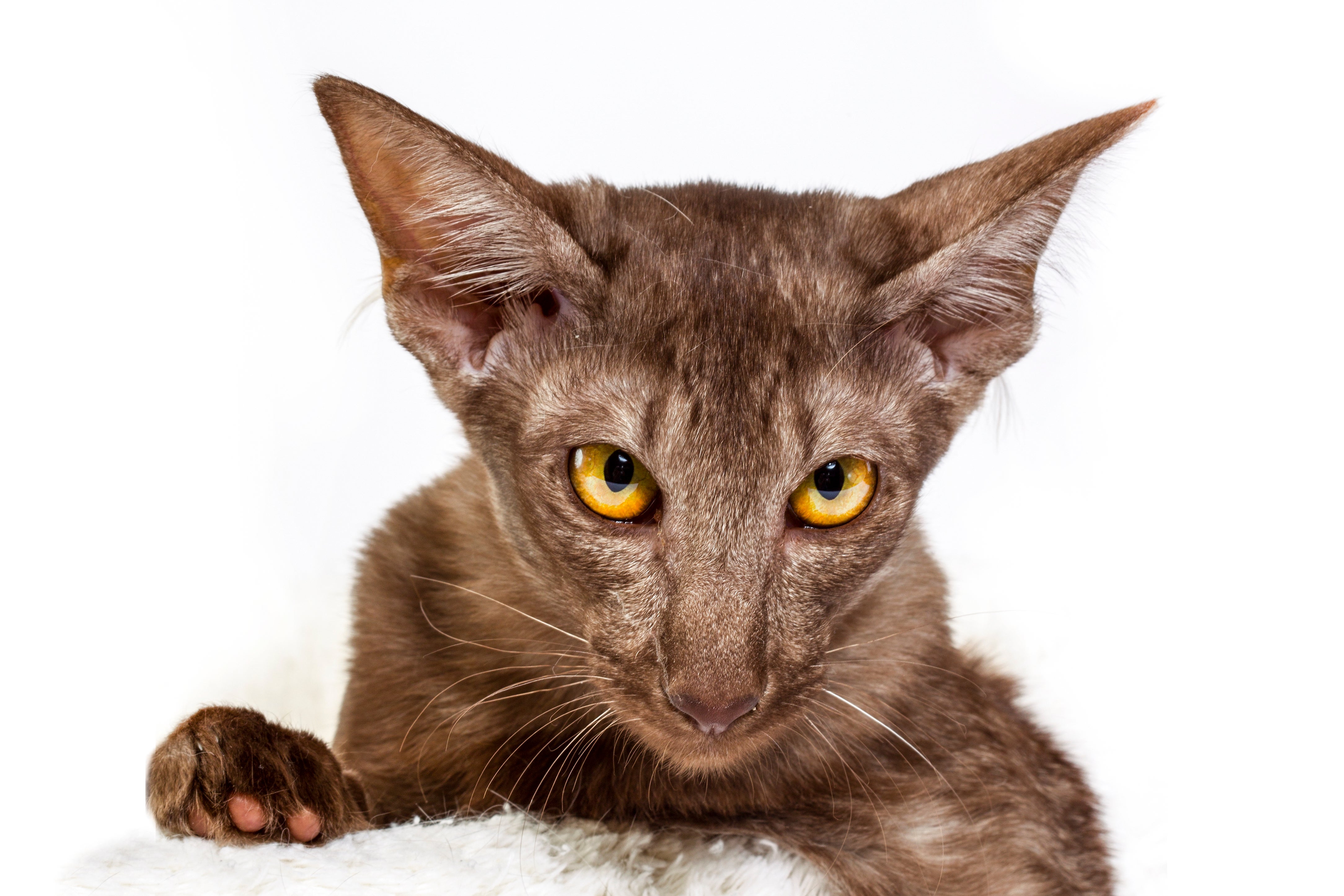Javanese
The Javanese cat is a human-oriented cat that will love following you around the house, keeping up a running meow monologue the whole time. Playful, chatty, and loving, they are an elegant and graceful breed. They are a relatively new breed, having only originated in the 1970s. Similar to Siamese Cats and Balinese Cats, the name is inspired by Java, an island close to Balinese, and hints at the relationship between the two breeds.
Breed characteristics carousel
Learn More
Need to Know
- Benefits from an experienced owner
- Needs a high level of enrichment
- Highly active and inquisitive cat
- Sociable and dependent cat
- Very talkative cat
- Lean and elegant cat
- Requires grooming once a week
- Needs extensive outdoor space
- Not ideal for family homes
- Can be regularly left alone for a few hours
- Needs a calm environment

Personality
Similar to the Balinese cat, the Javanese cat is affectionate and cheerful. They want to be around their owners, chatting to them in an endless stream of cat commentary. Inquisitive, smart, and good communicators, they are responsive and engaging cats who seem to understand every word their owners say. They’re eager learners, making them easy to train.
The Javanese cat is closely tied to the Balinese Cat. It’s a relatively new breed, only developed in the 1970s. They were a result of wanting a longer-haired version and variety in Siamese Cat. Breeders crossed Balinese with colorpoint Shorthair Cats, resulting in the striking Javanese.
If you love a chatty cat, the Javanese is for you. They are good family pets and get along well with most humans and animals. Outgoing and alert, they like to make sure everyone knows they have entered a room. They are social butterflies and always underfoot, so owners will need to be OK with having a permanent shadow who likes to be in your business.
Energetic and eager, the Javanese cat likes to be active. They enjoy interactive toys, cat trees, scratching posts, and more. They love playing games with their owners best of all.
Javanese cats love to climb, so vertical structures can help meet that need. They are little private detectives, snooping around looking for things to take or investigate, something to keep in mind if you have a lot of breakables or shelves filled with things.
The Javanese cat only has a single coat, unlike most longhaired cats, which have double coats. They don’t have a lot of grooming needs and can take care of themselves usually; brushing once or twice a week should help remove dead or loose hairs.
Put the Javanese cat’s curiosity to good work by training them. They’ll enjoy learning and interacting with their owners, and they are highly food-motivated. They respond best to positive reinforcement methods.
Easygoing and amiable, the Javanese cat does well in a variety of environments and is very adaptable. Families with children are a good option for the Javanese—the more family members, the more people for them to talk to!
The cost of a Javanese cat from a breeder is significantly more than the cost of adopting one from a local shelter or rescue. The adoption fee usually covers additional items such as spaying or neutering, vaccines, and microchipping.

Learn more about feeding and caring for your Javanese on Purina.
Did You Know?
- The Javanese cat is not from Java. They get their name from their close relation to the Balinese Cat, and Java and Bali are nearby.
- Javanese cats are exceptionally vocal cats and love nothing more than chatting with their families.

